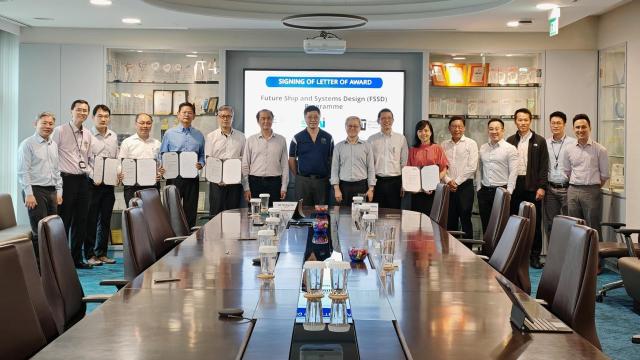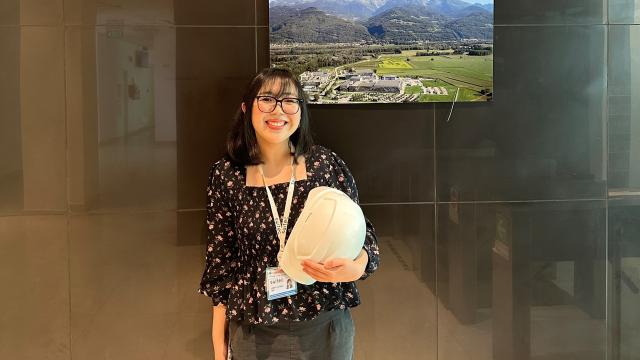
In its third year, the CXO Lean Summit 2018 held on 24 April showcased some success stories from industry practitioners who engaged the services of the Lean Transformation Innovation Centre (LTIC) at SIT.
Organised by LTIC, supported by Lean Global Network and SkillsFuture Singapore, this year's summit centred around the theme, Placing Patients At The Heart of Healthcare Transformation, which saw more than 300 participants, who came mainly from healthcare organisations in Singapore.
Keynote speaker, John Shook, Executive Chairman, Lean Global Network and Lean Enterprise Institute (USA), shared how leaders could align the problem-solving activities of employees with strategic priorities to radically and sustainably improve organisational performance, specific to healthcare organisations.
"Workflow and systems in healthcare organisations such as hospitals are very complex. It took a while for me to understand it. However, in whichever scenarios, it is always possible to identify a problem area and to have a desire to get from 'as is' now to 'what it is supposed to be' in the near future to improve the work outcomes," said John Shook.

Mr John Shook, Executive Chairman, Lean Global Network and Lean Enterprise Institute, delivering his keynote address.
Plenary speaker, Denise Bennett, Executive Director, Australasian Lean Healthcare Network and Lean Coach, Lean Global Network shared a personal example on how 'non-Lean' practices in a hospital setting gave her niece a 'round-about treatment' that caused many unnecessary delays, mis-diagnoses, confusion and patient anxiety.
"The fact is all the negatives could have been avoided if we increase focus on patient-centric care. Healthcare organisations can give true value to patients by designing their processes and practices around patients," said Denise Bennett.
Participants who have put Lean thinking and management skills into practice also shared their successful journeys at the summit. They included National Heart Centre (NHC) Singapore, Yishun Community Hospital (YCH) and Mount Alvernia Hospital, alongside SIT Faculty, Associate Professors Genedine Lim and Malcolm Low, on their experiences in Lean transformation.
Mount Alvernia Hospital cited the vast improvements in its patient check-in/out process at its paediatric ward. The redesign of the workflow process effectively shortened the response time of cleaners from 30 to 10 minutes, which ultimately resulted in shorter wait-time for a patient to secure a room.
"Additionally, our collaboration with SIT students and faculty to develop smart phone apps as part of the innovative solution for our redesigned workflow presents a very cost-effective way of solving our problem. It well exceeded our expectations," said Jared Koh, Business Analysis and Strategic Planning Senior Executive, Mount Alvernia Hospital.
SIT also had its students come up with web-based solutions for YCH, when the organisation redesigned their workflow process in the hospital's change of bedside curtains. Curtains are changed based on either their scheduled cleaning dates or if they have been used by an out-going patient. It is a standard practice at hospitals as a form of infectious disease control measure.
YCH managed to streamline the curtain-change process by transforming it from a manual tracking method on paper, to a web-based solution approach. The web-based innovation increased accountability and efficiency in identifying and tracking the changing of bedside curtains. This significantly increased the number of curtains that could now be changed within the same time frame before the implementation of the web-based approach.
Last but not least, NHC Singapore shared how the application of Lean thinking tools, such as a 'management board', successfully boosted engagement and involvement of ground staff. The daily huddle around the board brought about transparency and clarity on the challenges and goals each ground member had to face on a daily basis.
Over the months, the positive results of the practice attracted the involvement of doctors as well as NHC's Medical Director, Professor Terrance Chua.

Panel discussion, from left to right: Ms Celyn Khor, Support Services Manager, Yishun Community Hospital; Mr Jared Koh, Business Analysis and Strategic Planning Senior Executive, Mount Alvernia Hospital; Ms Denise Bennett, Executive Director, Australasian Lean Healthcare Network, and Lean Coach , Lean Global Network; Mr John Shook, Executive Chairman, Lean Global Network and Lean Enterprise Institute; Ms Chiong Siau Chien, Cardiac Laboratory Head of Department, National Heart Centre Singapore; Assistant Professor Jawn Lim, Deputy Director, Office of the Vice President (Planning), SIT.
![[FA] SIT One SITizen Alumni Initiative_Web banner_1244px x 688px.jpg](/sites/default/files/2024-12/%5BFA%5D%20%20SIT%20One%20SITizen%20Alumni%20Initiative_Web%20banner_1244px%20x%20688px.jpg)


